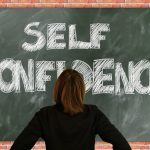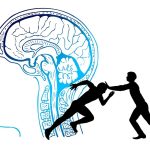In today’s fast-paced world, the concept of mindfulness has gained significant attention as a means to navigate the complexities of life. Mindfulness, often associated with meditation and present-moment awareness, offers more than just stress relief or improved focus. It is a profound journey of self-discovery that can transform our lives in meaningful ways. This article explores how mindfulness serves as a powerful path to self-discovery, unraveling the depths of our being and helping us find clarity, purpose, and fulfillment.
Understanding Mindfulness
Before delving into mindfulness as a path to self-discovery, it’s essential to understand what mindfulness truly means. At its core, mindfulness is a state of conscious awareness – a mental practice that involves paying deliberate and non-judgmental attention to the present moment. Rather than being lost in thoughts about the past or future, mindfulness encourages us to fully engage with the here and now.
Jon Kabat-Zinn, a pioneer in the field of mindfulness, defines it as “the awareness that arises through paying attention, on purpose, in the present moment, non-judgmentally.” This definition underscores the intentional and non-judgmental aspects of mindfulness. It’s about observing our thoughts, emotions, and sensations without criticism or attachment.
The Practice of Mindfulness
The practice of mindfulness often involves meditation, but it extends beyond sitting in silence. Mindfulness can be applied to various aspects of life, from eating and walking to listening and even working. Here are some key components of mindfulness practice:
- Breath Awareness: One of the most fundamental mindfulness practices involves paying attention to your breath. By focusing on the rhythm of your breath, you anchor yourself in the present moment and create a space of awareness.
- Body Scan: This practice involves systematically scanning your body, paying attention to any physical sensations or tensions. It helps you develop an embodied awareness and can be a powerful tool for self-discovery.
- Observing Thoughts and Emotions: Mindfulness encourages you to observe your thoughts and emotions without judgment. Instead of getting caught up in them, you become an impartial observer, gaining insights into your inner world.
- Cultivating Gratitude: Mindfulness can involve the practice of gratitude, where you consciously appreciate the positive aspects of your life. This fosters a more positive outlook and can reveal your values and priorities.
- Mindful Movement: Activities like yoga and Tai Chi incorporate mindfulness principles by emphasizing present-moment awareness and the connection between mind and body.
Mindfulness as Self-Discovery
Now that we have a foundational understanding of mindfulness, let’s explore how it serves as a transformative path to self-discovery.
- Unveiling the Layers of Self: The journey of self-discovery often begins with peeling back the layers of conditioning, societal expectations, and external influences that have shaped our identities. Through mindfulness, we develop the capacity to observe these layers without judgment. This non-judgmental awareness allows us to uncover our authentic selves – the essence of who we are beyond societal roles and labels.
By consistently observing our thoughts and emotions, we start to discern what is truly our own and what has been imposed upon us. This process of self-inquiry can be both liberating and enlightening, as it reveals our unique values, desires, and aspirations.
- Emotional Intelligence: Mindfulness equips us with a heightened emotional intelligence. As we observe our emotional responses without judgment, we gain insight into the root causes of our reactions. We begin to understand our triggers, patterns, and underlying beliefs that shape our emotional landscape.
This self-awareness is a powerful tool for self-discovery, as it helps us make conscious choices about how we respond to life’s challenges. It also enables us to cultivate emotional resilience and navigate difficult emotions with grace.
- Clarity of Purpose: Many people embark on a journey of self-discovery in search of their life’s purpose. Mindfulness can play a pivotal role in this quest by helping us align with our true passions and values. When we are fully present in our activities and engage mindfully with our inner world, we gain clarity about what truly matters to us.
Mindfulness allows us to listen to our inner voice and connect with our intuition. This deep introspection often leads to a profound sense of purpose and direction in life. By being in touch with our core values, we can make choices and set goals that are in harmony with our authentic selves.
- Enhanced Self-Acceptance: Self-discovery is not always about uncovering a flawless, idealized version of ourselves. It is also about embracing our imperfections and shadows. Mindfulness fosters self-acceptance by teaching us to be compassionate toward ourselves, flaws and all.
Through mindfulness, we learn to acknowledge our shortcomings without self-criticism. This compassionate self-acceptance is a cornerstone of self-discovery because it allows us to integrate all aspects of our being, including those we may have deemed unworthy or undesirable.
- Letting Go of Attachments: Another aspect of self-discovery is recognizing and releasing attachments that no longer serve us. Mindfulness helps us identify attachments to material possessions, relationships, or identities that may have held us back. By observing these attachments without judgment, we gain the clarity and strength to let go.
Letting go can be a profound act of self-discovery as it frees us from the burdens of the past and opens up space for new experiences and growth. It allows us to redefine ourselves and our priorities.
- Living in Alignment: Ultimately, self-discovery through mindfulness leads to a life in alignment with our authentic selves. When we are aware of our values, passions, and purpose, we can make intentional choices that reflect these aspects of our identity. This alignment brings a deep sense of fulfillment and contentment.
Living in alignment also means setting boundaries that protect our well-being and honor our true selves. It involves making choices that are congruent with our values, even if they may challenge societal norms or expectations.
Mindfulness in Everyday Life
One of the remarkable aspects of mindfulness as a path to self-discovery is that it can be integrated into everyday life. Here’s how you can incorporate mindfulness practices into various aspects of your daily routine:
- Morning Ritual: Begin your day with a few minutes of mindful breathing or a body scan. This sets a positive tone for the day and helps you connect with your inner self before the demands of the external world take over.
- Mindful Eating: When you eat, do so with full awareness. Savor each bite, notice the flavors, textures, and sensations. Eating mindfully can reveal your relationship with food and your body.
- Work and Creativity: Practice mindfulness at work by taking short breaks for deep breaths and centering exercises. This can improve focus, productivity, and creativity while also helping you align your work with your values.
- Mindful Communication: Pay close attention to your conversations with others. Listen actively, without judgment, and be fully present when interacting with people. Mindful communication fosters deeper connections and understanding.
- Evening Reflection: Before bed, reflect on your day with mindfulness. What went well? What could have been better? This practice promotes self-awareness and helps you learn and grow from your experiences.
- Mindful Walking: Whether you’re strolling through a park or walking to work, practice walking mindfully. Feel each step, the sensation of your feet on the ground, and the world around you. This can be a grounding and centering practice.
Challenges on the Path of Mindfulness
While mindfulness is a powerful tool for self-discovery, it is not without its challenges. Here are some common hurdles people may encounter on their mindfulness journey:
- Restlessness and Distraction: It’s natural for the mind to wander, and distractions abound in our modern lives. Many people find it challenging to sit still and maintain focused attention. However, with practice, you can train your mind to become more centered and present.
- Impatience: Some individuals expect immediate results from mindfulness practice. They may become discouraged if they don’t experience profound insights or changes right away. Patience and consistency are key to unlocking the deeper layers of self-discovery.
- Self-Judgment: Ironically, some people begin their mindfulness journey with a critical mindset, berating themselves for not being “good” at it. Mindfulness is about non-judgmental awareness, so it’s essential to cultivate self-compassion and let go of self-criticism.
- Resistance to Unpleasant Emotions: Mindfulness may bring to the surface challenging emotions and unresolved issues. It can be uncomfortable to confront these aspects of ourselves, but doing so is a crucial part of self-discovery and healing.
- Maintaining Consistency: Establishing a regular mindfulness practice can be difficult amid the busyness of life. However, consistency is essential for reaping the long-term benefits of self-discovery through mindfulness.
Conclusion
Mindfulness is not just a fleeting trend; it is a timeless practice that offers profound insights into the depths of our being. Through mindfulness, we embark on a transformative journey of self-discovery that unravels the layers of conditioning, reveals our authentic selves, and brings clarity, purpose, and fulfillment to our lives.
By cultivating self-awareness, emotional intelligence, and self-acceptance, we become better equipped to navigate the complexities of life. We learn to let go of attachments that no longer serve us, make choices in alignment with our values, and live authentically.
While the path of mindfulness may have its challenges, the rewards are immeasurable. It empowers us to live with intention, find meaning in our experiences, and ultimately, discover the true essence of who we are. Mindfulness is not just a practice; it is a profound and lifelong journey of self-discovery that can lead to a more fulfilling and purposeful existence.




